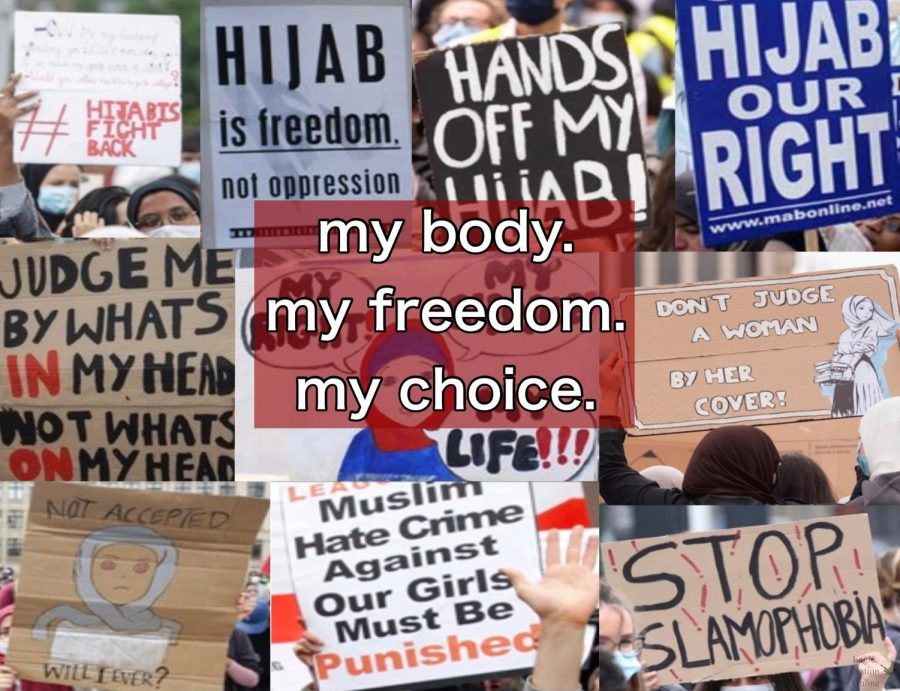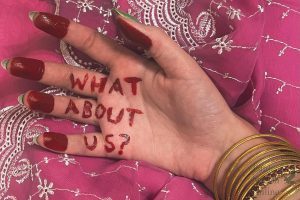Editorial: Women should have the right to wear a hijab – anywhere
Women choose to wear a hijab for many reasons, but the main reason is that the hijab allows them to retain their modesty, morals and freedom of choice. They choose to cover themselves because, for them, it is liberating, and the hijab allows them to avoid harassment and unwanted attention from men. It is also a symbol of their relationship with God and with their faith. Images used were taken from ShutterStock and inminds.co.uk with the understanding that they are available for editorial usage.
The French Senate voted last week in favor of banning the wearing of a hijab, a headscarf worn by Muslim women, in sports competitions, arguing that “neutrality is a requirement on the field of play.” The upper legislative house voted Jan. 18 in favor of amending a proposed law that said the wearing of “conspicuous religious symbols” is prohibited in sports events and competitions.
This is only one of the many laws that have been passed in the last year that discriminate against Muslim women in France, as the French Senate also passed an amendment banning all minors from wearing a hijab in public, as well as a ban against the body-covering swimsuit, known as the burqini, at public pools and beaches.
The French Senate’s behavior is appalling – and shame on the members of the French government who are pushing for increasingly Islamophobic laws, including the president himself.
French President Emmanuel Macron has made it his mission to safeguard France from “radical Islamists” and “promote respect for the French Republic,” which evidently translates to restricting the rights of Muslim women and girls in France. Recently, the head of Macron’s political party withdrew support late last week for one of the party’s own candidates, Sarah Zemmahi, an engineer and local candidate, after she wore a hijab in a campaign poster, claiming that he would not back her as a candidate until she removed her hijab in the photo.
Asking a Muslim woman to remove her hijab is equivalent to asking her to strip in front of everyone. It’s offensive – and it’s humiliating.
France has a long history of anti-Islamic behavior, going back to the 1830s when they committed genocide in Algeria. While Jewish Algerian natives were recognized as French citizens in 1870, Muslim Algerians were not unless they renounced Islam.
The Collective Against Islamophobia in France, a non-profit that was forced by the French government to dissolve in 2020, in a move that the Human Rights Watch called a “threat to basic human rights and liberties,” reported in 2019 that 70% of Islamophobic hate speech and acts in France were directed at women.
In 2004, Muslim headscarves were banned from being worn in French public schools. In 2010, the country prohibited niqabs, which are full-face veils, in public spaces such as streets, parks and public transportation, becoming the first European country to enforce a nation-wide ban, and even launching a government campaign that proudly stated, “the Republic is lived with an uncovered face.”
Islamophobia and hate for the hijab stems from the western idealization of “freeing” women, out of some sense of moral justice. But really, this freedom is not freedom at all – it is the desire of western countries to make Muslim women assimilate to their culture and religion – to give up their own identities to fit in.
According to Alia Al-Saji, an associate professor of philosophy at McGill University, if it was about giving Muslim women more agency, then, in that case, the government could let all women wear whatever they wanted. It’s actually about controlling what women wear and how they appear, and what gets seen and that their bodies are seen. It’s this kind of colonial male desire that constructs Muslim women as trapped and pawns of their culture, along with the need to be unveiled.
The Western argument is that the hijab is a symbol of oppression against women. This is a colonial mentality. If those against the hijab truly cared about women’s rights, they would work on improving education for women in poor areas as well as ending child marriage, child trafficking and domestic abuse.
Hate for the hijab – instead of support for the women underneath and whether they made a choice to wear it – is what causes discrimination and intolerance.
The United States has stood for free speech and free religion since the day the Constitution was written. Yet, every day, discrimination divides us.
Those who perpetuate anti-Islamic values argue that since 9/11, Islamic terrorist attacks are only increasing. Never mind the number of terrorist attacks by those of other religions, or the fact that the Muslim-American community has helped security and law enforcement officials prevent nearly two of every five al Qaeda terrorist plots threatening the U.S., according to the Muslim Public Affairs Council in Washington, D.C., and that tips from the Muslim-American community are the largest single source of initial information to authorities about these few plots.
Solving international terrorism does not start with restricting women. It starts with education, but the issue is more complex than it seems. Radical Islamic beliefs tend to run rampant in higher education in the Middle East, according to American political journalist Nicholas Kristof in his article, “My Friend, the Former Muslim Extremist.”
A charismatic Islamic studies teacher turned Kristof’s friend into a Taliban sympathizer, who despised the West and viewed the Taliban as “freedom fighters.” However, this changed when he went to university in the U.S., and met many educated and talented Muslim women who made him realize that the anti-feminist, anti-West ideologies he had learnt in school were wrong.
According to Kristof, Islamic doctors or engineers are sometimes extremists because in their country’s specialized education system, they gain the confidence of a university degree without the critical thinking that comes from an acquaintance with the liberal arts.
Donor countries should support education, Kristof says, but pay far more attention to the curriculum. We should also invest in girls’ education, for it changes entire societies. Educated women have fewer children, which reduces the youth bulge in a population – one of the factors that correlates most strongly to terrorism and war. And, extremist American views influence extremist Islamic views – it’s a double-edged sword. When one speaks badly of the other, it only fuels anger on both sides. Respect and understanding are the first steps to reducing global tensions and hatred from opposite sides.
For Islamic women who choose to wear the hijab, it allows them to retain their modesty, morals and freedom of choice. They choose to cover themselves because for them, it is liberating, and the hijab allows them to avoid harassment and unwanted attention from men. It is also a symbol of their relationship with God and with their faith.
We would never make it illegal in the U.S. for a woman to wear a cross necklace – it’s a symbol of something that’s close to her heart and shapes her identity. It’s time that we give the same respect to women who wear hijabs.
Your donation will support the student journalists of Prosper High School. Your contribution will allow us to purchase equipment and cover our annual website hosting costs.

Honors, Experience and Awards:
5 Best of Sno publications.
5th place in Copy Editing, district UIL meet 2021
Honorable mention- Podcast interview, 2021 TAJE Fall Fiesta
UIL Journalist 2020-2021, 2021-2022
Quill and Scroll Society member 2021-2022
1st place in Copy Editing for CENTEX UIL meet 2021-2022
3rd place in Copy Editing for Aubrey UIL meet 2022
2nd place in Copy Editing for NorTex UIL District meet 2022
National Silver award for poetry from the Scholastic Art & Writing organization
National Recognition Award from College Board
AP Scholar with Distinction Award
2 Best in Texas News & Broadcast Awards, 2022: Personal Opinion Column- Honorable Mention, News Story- Honorable Mention
President of the Classic Book Club, 2020-onwards
Member of the National Spanish Honors Society (NSHS)
PHS Award for Academic Excellence in Newspaper II, 2022
Dean’s Scholarship for Cornell University Pre -College Program
Sibley Scholarship for Brown University Pre -College Program
CIEE Global Navigator Scholarship















